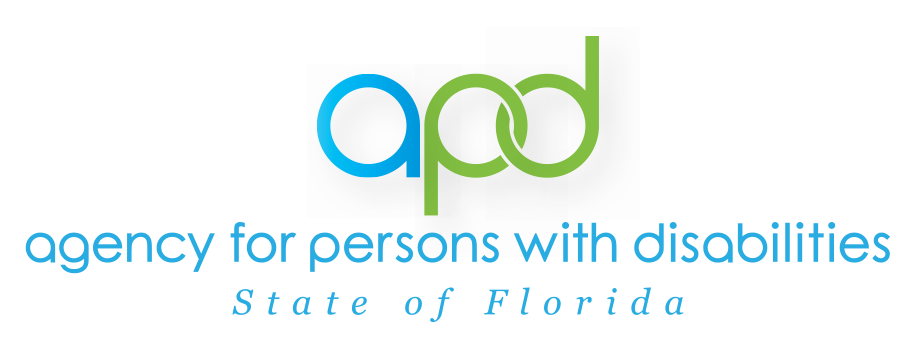Supported Employment
Employment Services
The agency supports individuals with disabilities who are interested in working. If you or someone you know with a disability is interested in a job, here are some ways to get help:
- If you are an APD client, please contact the APD local office nearest you, and we will guide you on the next steps
- Local Offices | APD - Agency for Persons with Disabilities - State of Florida
- If you are not an APD client, please contact 833-GET-HOPE and an APD Hope Navigator will assist you with your employment goals
APD Employment Service Types
Life Skills Development Level 2 (LSD 2) - Supported Employment: This service provides training and assistance to help APD clients with finding a job and sustaining paid competitive employment.
Life Skills Development Level 4 (LSD 4) - Prevocational services: This time-limited service provides learning and work experiences, including volunteer work, where individuals can develop general, non-job-task-specific strengths and skills that contribute to employability in paid employment in integrated community settings. Some examples include training for:
- Non-job-task specific skills
- Communication and workplace conduct
- Following directions and problem-solving
- Workplace safety and mobility training
Employment Enhancement Program (EEP) – This program provides supported employment services to individuals in pre-enrollment categories to find and maintain competitive employment and participate in meaningful internships that are likely to result in competitive employment. The EEP program can help with:
- Job skills and job acquisition
- Job coaching and follow-along services
- Paid and unpaid internships
Work Incentives – Maintaining Benefits While Working
Some individuals are hesitant to work because of the fear of losing benefits like Medicaid and Social Security. Here are programs that may help with these concerns.
Working People with Disabilities Act
The 2019 “Working People with Disabilities” legislation directed the Agency for Health Care Administration to seek an increase in the monthly income limit for individuals earning wages through employment. This change allows those enrolled in certain home and community-based services waivers, including the Developmental Disabilities Individual Budgeting Waiver (iBudget), to have higher income and asset limits without losing their Supplemental Security Income (SSI) benefits. The Department of Children and Families (DCF) implemented these changes on July 1, 2020. For more details on how this legislation may impact individuals on the iBudget Waiver, please refer to the two documents published by the Agency for Health Care Administration below.
Social Security Work Incentives
Individuals with disabilities can also access various Social Security Work Incentive programs. Benefits of work incentives can include a variety of supports and flexibilities to support employment and vary greatly depending on the individual and their earnings. To learn how these supports may apply in specific circumstances, an individual can contact their APD supported employment coach, supported living coach, or waiver support coordinator who are training and educated on these incentive programs.
Florida Association of Centers for Independent Living (FACIL)
In 2008, the Florida Legislature established a permanent statewide program called The James Patrick Memorial Work Incentives Personal Attendance Services and Employment Assistance Program, which can be accessed through FACIL. The program provides a monthly stipend to adults with disabilities who require personal assistance services to attain and maintain competitive and integrated employment. Additional information can be found at floridacils.org or by contacting APD’s Hope Florida team through (850) 438-4673.
Achieving a Better Life Experience (ABLE) Act
This federal law allows individuals with disabilities to open ABLE United accounts. The Florida Prepaid program administers ABLE United accounts which are a way for Florida families to save and care for their loved ones with disabilities, without losing benefits. Families can save up to $17,000 annually without impacting Social Security Income or Medicaid eligibility. For more information, please visit Florida’s ABLE United Program website.
Florida Unique Abilities Partner Program
This program helps connect job seekers to employment and recognizes businesses and organizations that are committed to providing employment, career, and financial opportunities to individuals with unique abilities. Click here for more information.
Unique Abilities Partner Program | APD - Agency for Persons with Disabilities - State of Florida
Transportation
Are you an individual with a disability that needs transportation to and from work? APD may be able to connect you to transportation services and resources. Transportation providers may include Community Transportation Coordinators (CTCs) for the transportation disadvantaged, limited transportation providers, public transit authorities operating fixed-route, fixed-schedule bus systems, group homes and other residential facilities where clients reside, adult day training programs, private for-profit, and non-profit transportation entities. For more information, please contact the APD Regional office nearest you.
Local Offices | APD - Agency for Persons with Disabilities
Supported Employment Links
- Websites of Interest related to Supported Employment
- Social Security Work Incentives
- Employment Stability Plan
- Guide to the Employment Stability Plan
- Vocational Rehabilitation Brochures
